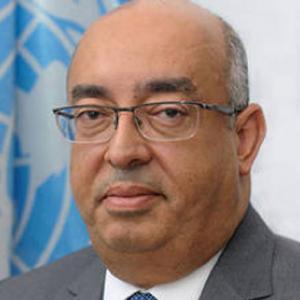Statement by the Director, Mr. Salah Khaled, UNESCO Regional Office for the Gulf States and Yemen to mark the International Mother Language Day 2024
21 February 2024
The International Mother Language Day was approved during the 1999 UNESCO General Conference at the initiative of Bangladesh.
Since then, this day has been observed globally, uniting people in their shared commitment to preserving linguistic diversity and cultural heritage. It is a day to celebrate linguistic diversity across the globe, to recognize that every language is a treasure of knowledge, history, and tradition. It is a reminder that linguistic rights are human rights, and that we must strive to protect and promote the languages of all peoples, especially those endangered or marginalized.
Today, 40% of the world’s population does not have access to education in a language they speak or understand. In some countries this figure rises to over 90%. However, strides are being made in multilingual education, especially in early schooling. Research shows that the use of learners’ own language in schools provides a solid foundation for learning, boosts self-esteem and critical thinking skills, and opens the door for inter-generational learning, language revitalization, and the preservation of culture and intangible heritage.
The theme for this year’s celebration is ‘Multilingual education is a pillar of intergenerational learning’. UNESCO believes that literacy programmes and methodologies respond to the needs of learners when they are context-relevant, possibly multilingual and support intercultural understanding within the framework of lifelong learning. UNESCO promotes multilingualism, that is the use of more than one language in daily life, especially in contexts where different linguistic groups exist in the same country. Multilingual education based on the mother tongue(s) in the early years of schooling plays a key role in the transition from home to school and fosters respect for diversity.
Multilingual education also extends to families and communities. By preserving and revitalizing languages, we bridge generational gaps and ensure that cultural heritage is passed down and cultural identity is protected. With students learning in their mother tongue language, parents and families are more likely to be involved in the learning of their children. UNESCO recognizes the importance of cultural and linguistic diversity for building sustainable societies. Our languages serve as conduits for transmitting and preserving traditional knowledge and cultures. They foster tolerance, respect, and understanding among diverse communities.
Let us celebrate our linguistic diversity and heritage. Each language contributes to the rich tapestry of humanity. By preserving languages, promoting multilingual education, we build bridges across generations, and people, ensuring our cultural legacies, and realizing one of the key objectives of education, which is to learn how to live together.


